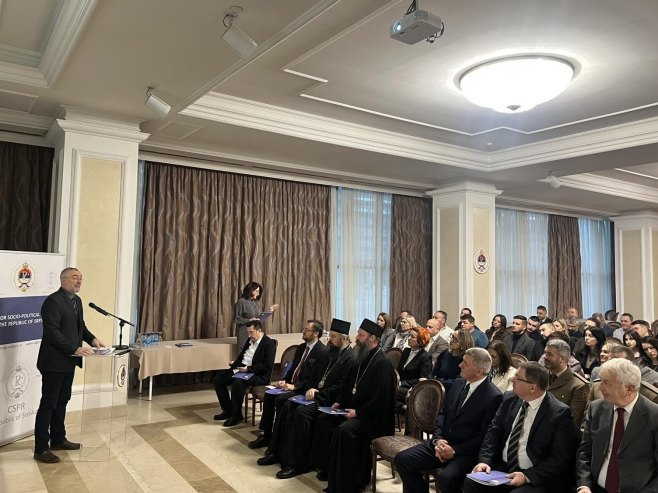The success of the Dayton Peace Agreement has been undermined by the gradual dismantling of its key elements – democracy, which has been eroded by the unlawful appropriation of powers by an unelected foreign official, Christian Schmidt; the constitutional order of BiH as a federal state where most competencies belong to the entities; and the consociational mechanisms of power-sharing that ensure equal participation of the constituent peoples in decision-making.
According to the 34th report of Republika Srpska to the UN Security Council, three essential elements of the BiH Constitution have been seriously degraded, largely as a result of reckless and ill-considered foreign interventions.
“The first element is democracy itself, which has been violated by the long-standing unlawful appropriation of powers by an unelected foreign official — the so-called High Representative — especially by the current usurper of that function, the German national Christian Schmidt. The BiH Constitution explicitly stipulates that all laws require the consent of both houses of the Parliamentary Assembly,” the report states.
It points out that nothing in the Dayton Agreement or in any other source of law grants the High Representative authority to issue binding decisions for BiH or any of its citizens. Nevertheless, successive High Representatives, including Schmidt, have governed the country through unconstitutional decrees, blatantly violating BiH’s democratic constitutional order.
“The second element that has been gravely undermined is BiH’s constitutional structure as a federal state in which most competencies belong to the autonomous entities — Republika Srpska and the Federation of BiH. Contrary to this carefully balanced design, High Representatives and their allies have transferred dozens of powers to the BiH level that the Constitution explicitly assigns to the entities,” the document states.
The third element, the report continues, is the system of consociational power-sharing mechanisms that ensure equal participation of the constituent peoples in decision-making, which has repeatedly been sabotaged by those seeking to centralize authority in the hands of the Bosniak majority.
“Such flagrant violations of the BiH Constitution jeopardize the success of the Dayton Agreement while seriously undermining stability, the rule of law, and democratic development in BiH. The country’s dysfunctionality is not the result of the Dayton compromise itself but of the failure to respect its constitutional framework. On the eve of the 30th anniversary of the Dayton Agreement, all those who care about BiH’s stability and success must recommit to the strict implementation of its explicit provisions,” the report emphasizes.
The Government of Republika Srpska reaffirms its strong support for the Dayton Peace Agreement, including its commitment to the sovereignty, territorial integrity, and constitutional order of BiH, stressing that Srpska remains unwaveringly dedicated to peace.
“Republika Srpska and its leadership consistently reject any use of violence and are committed to resolving political disputes in BiH exclusively through peaceful means,” the report notes.
It recalls that the 1995 Dayton Peace Agreement represents a brilliant compromise that not only ended a devastating war in BiH but also enabled the peaceful coexistence of three formerly warring peoples within a democratic framework.
The document further notes that BiH’s population consists primarily of three constituent peoples — Bosniaks, who are predominantly Muslim and form a slight majority; Serbs, who are mostly Orthodox Christians; and Croats, who are largely Roman Catholics.
“During the war, Bosniaks fought for a centralized BiH without mechanisms to protect the rights of the constituent peoples, while Serbs fought for an independent Republika Srpska. The Dayton compromise ensured that none of the three peoples achieved all their goals, but it created a structure that allows for sustainable peace and a functional community of three nations marked by deep mutual mistrust,” the report states.
Republika Srpska concludes that the Dayton Agreement has succeeded precisely because its architects respected the ethnic realities on the ground, embedding a carefully crafted constitution that enables the three constituent peoples to live side by side in peace within a democratic state, without endangering each other’s vital interests.
“The essence of the Dayton compromise is the BiH Constitution — Annex 4 of the Dayton Agreement,” the report concludes.
Source: RTRS









